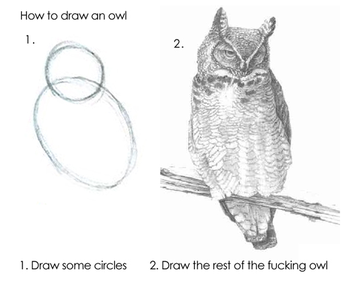Ramit is killing it over at his blog. In his recent post How to ace the world's toughest interviews, he says top performers maniacally prepare and hustle in order to land jobs at competitive companies. Below is a story he recounts.
A few months ago, I met a college student at a conference. He was telling me about his job search. “I have a few companies I want to go after,” he said excitedly. “I’m pretty sure I can get a job offer from all of them. Then I'll have to pick! I just have to start working on my interviews. What do you suggest?”
I asked him if he’d researched the interview process. Had he done any practice interviews with friends? What about reaching out to older friends who worked there? He shook his head no impatiently. Then he told me he’d get to all that, but did I have any “tips” to share with him?
I didn’t know what to tell him. He had no idea what he was getting into.
The companies he named were some of the most competitive in the Bay Area. He had little experience (which is fine for college students) and a competitive GPA. But his communication skills were terrible. As we talked — with him talking at me instead of with me — I compared him to a group of friends I had in college.
During interview season, this group of friends and I sat around the dining halls and shared our best interview techniques on a regular basis. We shared the craziest questions we got, the best answers we’d given, and the strategies that alumni — the hiring managers — had let us in on. My friends from this group went on to get jobs at McKinsey, BCG, Google, Goldman, and other extraordinary companies.
This isn’t meant to brag. But let me share what was happening in these dining-hall meetings. Each of us was relentlessly focused on becoming the world’s best interviewees. We studied interview techniques — for hours every week. We tested our best material with interviewers. (Many students would schedule interviews with companies they have no interest in to use as “practice interviews.” Like it or not, it works.) Then we brought it back to the group, compared notes, practiced our cadence, rhythm, and tone, tore each other’s answers apart, and systematically improved our interview skills. Over and over.
So when this random guy at a conference was telling me his interview strategy, there was a game going on around him that he didn’t even realize. Serious applicants to companies like McKinsey were practicing their case-interview techniques for MONTHS before they ever stepped foot in the interview room. These same applicants that had talked to alumni/friends currently at their target companies to get the inside scoop on what really mattered in the interviews. They’d read books and Vault Guides and had attended info sessions. By the time they got to the interview, they were absolutely ready.
And, as with virtually any other complex transaction, 85% of the work was done before these serious candidates ever stepped foot into the interview room.
And the scary thing is, this is what most top performers do.
What does this mean for you?
Am I saying that you need connections and dozens of hours of interview prep to get a job with these companies?
Of course not.
But it sure stacks the odds in your favor.
